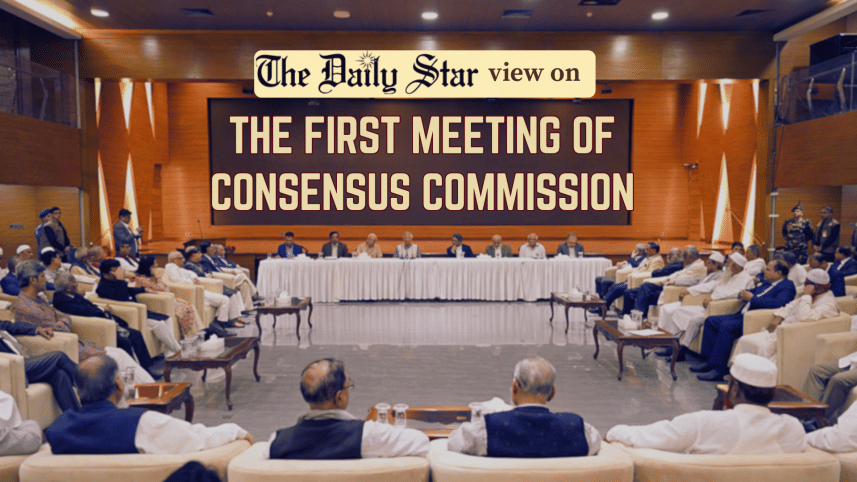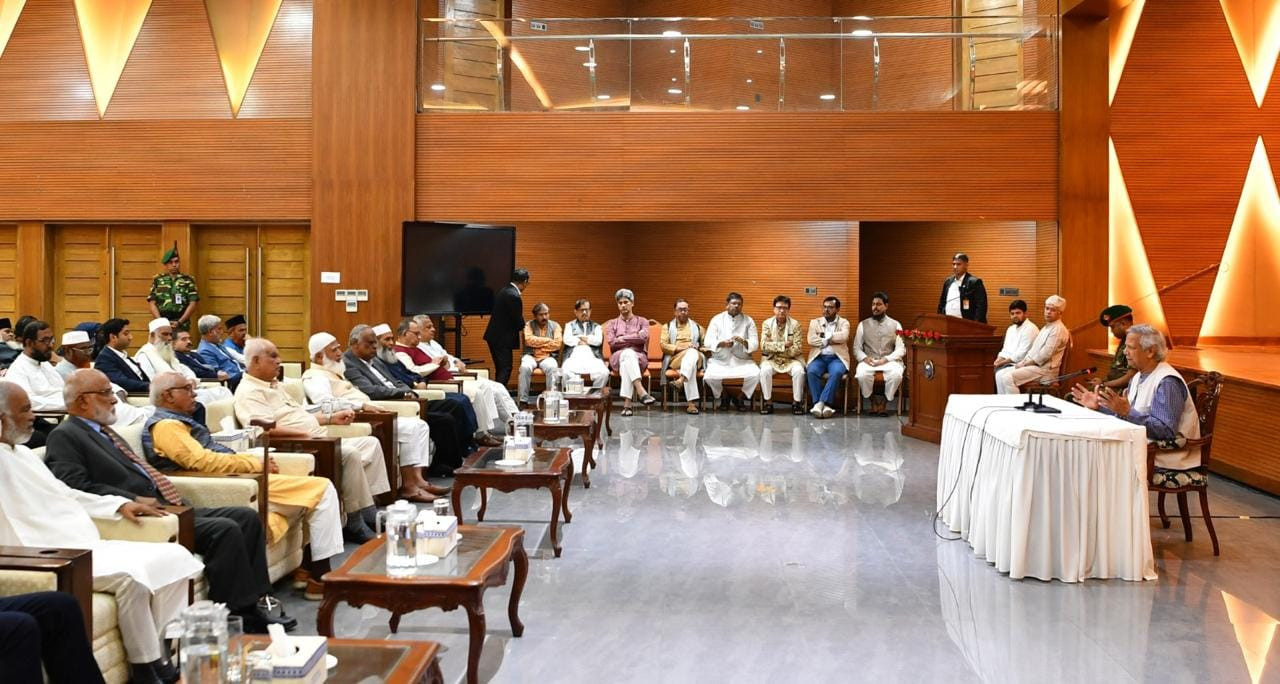Time to set aside partisan interests

We welcome the initiation of the official process to build consensus on the proposals submitted by six key reform commissions, with Chief Adviser Muhammad Yunus calling it the start of the "second phase" of the interim government. Earlier, when four of the six commission reports were submitted in mid-January, Prof Yunus took a similarly upbeat view of it alluding to a "new chapter" for the nation. Indeed, the first meeting of the National Consensus Commission, attended by some 100 representatives from 26 political parties and alliances, was all about reaffirming the commitment to state reform in line with the spirit of the July uprising, as well as determining the process of consensus building. At the end of this process, there will be a charter based on discussions with political parties and civil society, which will serve as a roadmap for executing the reforms.
The significance of undertaking this process properly cannot be overstated. Prof Ali Riaz, co-chair of the seven-member consensus commission, has stated that dialogues will be held with all political parties individually and in groups, including "unofficial discussions." He also signalled that even though the commission has been given six months, their goal is to reach consensus as soon as possible. Summaries of the six reports have already been shared with political parties for review and feedback. Reportedly, there will be a methodical approach to collecting feedback. One participant at Saturday's meeting told Prothom Alo that mention was made of a website where the reform proposals would be published and political parties can mark "yes" or "no" on each, ensuring transparency and accountability in the process.
That said, we think it is important that the reform proposals are categorised based on feasibility and urgency. For example, certain proposals—such as improving electoral integrity, ensuring transparent governance, or curtailing the prime minister's powers—already enjoy broad consensus. Others—such as constitutional amendments or restructuring key institutions—may require prolonged deliberation and public endorsement. It is also essential to separate short-term, easily implementable reforms from those requiring long-term structural changes. However, the greatest challenge will be in reaching consensus on the most critical reforms. This is where political parties must demonstrate their commitment by prioritising national interests over partisan agenda.
Unfortunately, consensus-building has historically been fraught and elusive in Bangladesh's politics. When the BNP secretary general refers to a "minimum consensus" as a baseline for wrapping up this process, leading to the next elections, it further raises questions about its success. We, therefore, urge political parties to engage in the reform dialogue with the sincerity and compromise it demands, because without political buy-in and constructive engagement, even the most well-intentioned reform initiatives may falter. They must rise above their differences, partisanship, and adversarial postures for the sake of a "new Bangladesh" that truly reflects the aspirations of those who fought and sacrificed during the July uprising. The ball is in their court now.



 For all latest news, follow The Daily Star's Google News channel.
For all latest news, follow The Daily Star's Google News channel. 


Comments